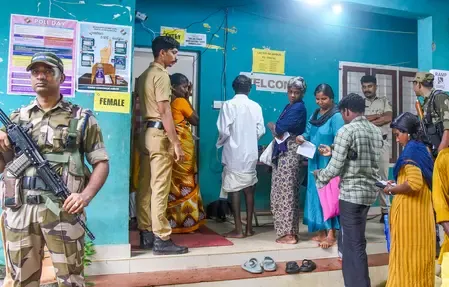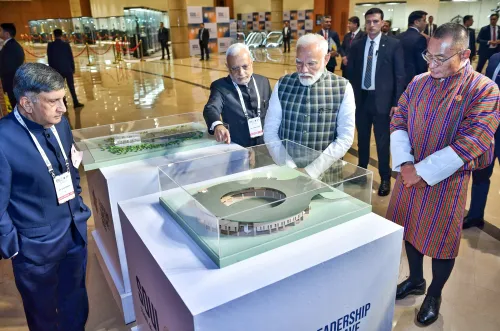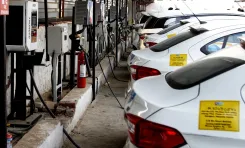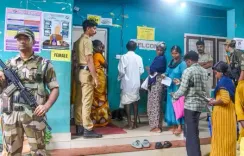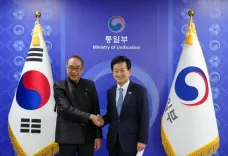Is Delhi Mayor Sardar Raja Iqbal Singh Providing Major Relief to Residents?
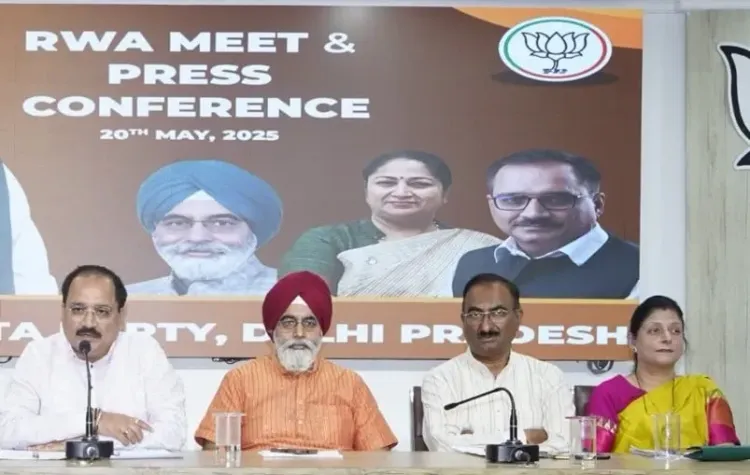
Synopsis
Key Takeaways
- Delhi Mayor reverses the User Charge for waste disposal.
- Community consultations influenced the decision.
- A new House Tax Amnesty Scheme has been introduced.
- Public opposition was significant, particularly among low-income residents.
- Future measures to ensure fair waste management practices are being discussed.
New Delhi, May 20 (NationPress) Delhi's Mayor Sardar Raja Iqbal Singh from the BJP has announced a significant relief for millions of residents by reversing the previous AAP administration's plan to impose a 'User Charge' on waste disposal for all property owners.
The proposed monthly charge, which ranged from Rs 50 to Rs 200 based on property size, was intended to be paid along with the annual property tax.
During the announcement, made alongside Delhi BJP President Virendra Sachdeva, Mayor Singh revealed that this proposal was part of the budget for 2025–26 approved during the Aam Aadmi Party’s tenure in the civic body.
“The decision to withdraw the proposal was made after consultations with various Resident Welfare Associations (RWAs) and members of civil society, following a request from Sachdeva,” stated Singh.
Additionally, the Mayor introduced a House Tax Amnesty Scheme allowing residents to pay property tax for the past five years without any interest or penalties.
Delhi BJP Media Head Praveen Shankar Kapoor also summarized objections from citizens' organizations regarding the User Charge that were submitted to BJP State President Sachdeva, Mayor Singh, Deputy Mayor Jay Bhagwan Yadav, Zonal Chairpersons Yogesh Verma and Sandeep Kapoor, Councillor Sharad Kapoor, and others.
He proposed that the payments for Property Tax and User Surcharge should be separated, to which the Mayor agreed.
Representatives from various RWAs and organizations, including Suresh Bindal, Atul Goyal, Saurabh Gandhi, Rajeev Kakaria, Chetan Sharma, Amina Talwar, Savita Singh, and Mahendra Goyal, also voiced their objections and suggestions to Sachdeva and Mayor Singh.
Sachdeva remarked that the User Charge was enforced by the AAP without any prior consultation, which contributed to public discontent.
He emphasized that many residents, particularly in low-income neighborhoods, are struggling to meet their outstanding property tax payments.
In recent days, representatives from various RWAs and trade associations have approached him to express their concerns.
Sachdeva noted that while citizens are willing to pay property tax, penalties and additional charges have made it nearly impossible for ordinary individuals to comply. Thus, the Mayor should allow residents to settle outstanding dues without penalties.
He added that the User Charge was introduced without proper consultation during the AAP’s governance, claiming to adhere to the Solid Waste Management Rules of 2016. However, the necessary procedures and the establishment of sanitation committees mandated by these rules were not followed.
Moreover, the Delhi Municipal Corporation Act of 1957 lacks provisions for this User Charge, highlighting the need for a legal framework prior to its implementation.
Sachdeva mentioned that discussions with civil organizations indicated that the Corporation failed to clarify the rationale behind the User Charge, and even colonies or housing societies asserting zero waste generation were not exempt from this fee.
Conversely, there are areas where the Corporation has not ensured proper sanitation services but still imposed the waste disposal charge.
Mayor Singh confirmed that following Tuesday’s RWA meeting, no additional User Charge will be levied for the 2025-2026 period, as the AAP had passed the bill without public consultation.
Furthermore, he indicated that a private member resolution will be proposed in the Delhi Municipal Corporation meeting on Wednesday to prevent the imposition of such charges in the future.
Some AAP members argued that the charges were based on the Central Government’s Solid Waste Management Bye-Laws, 2017, implemented through three separate notifications for each former municipal corporation, published by the Delhi Government on January 15, 2018. Despite the notification being approved, the MCD has not collected the fee in the past seven years.


